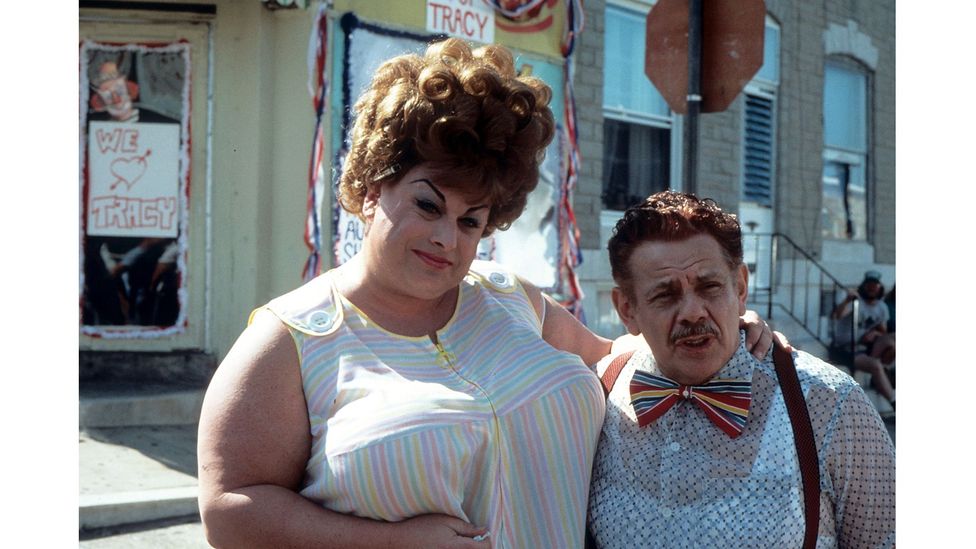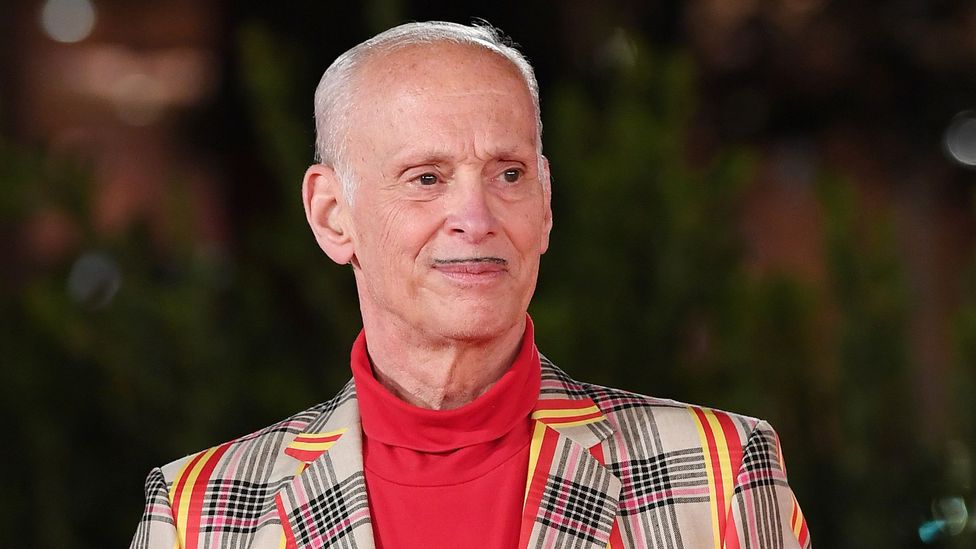As the iconic film is re-released in UK cinemas, John Waters tells Christina Newland how Hairspray broke taboos – and changed his career.
Baltimore, 1962. A chubby teen girl, Tracy Turnblad (Ricki Lake), is desperate to make it on to her favourite local music programme, The Corny Collins Show, where hip teenagers take part in the latest dance crazes - the Mashed Potato, the Twist, and more - to the live accompaniment of artists such as Frankie Avalon and the like. When she gets a guest spot on the show and becomes a teen icon overnight, she starts a fight to bring racial integration to the show.
More like this:
- The greatest comic book movies ever made
- 11 of the best films to watch in June
- David Lynch on 'the beauty in the dark'
Thirty-five years after the release of John Waters' Hairspray, it's fair to say that it's probably one of his most recognisable and lucrative films. On 9 June, Park Circus re-releases the 1988 film in UK cinemas, and its feel-good rep notwithstanding, it is deeply entwined with Waters' own upbringing (also in 1960s Baltimore.) In a long career spanning some of the most reviled and controversial of B-movies, wherein crossdressing, eating excrement, and putting infants in fridges was par for the course, Hairspray has long felt like Waters' most personal film. Given the glittering mainstream treatment of Hairspray in its hit stage musical and in its 2007 remake, which Waters produced, it may seem like an outlier in the career of the so-called "Pope of Trash", but look closely and you see the subversion is clearly still there. BBC Culture had a chat with the eminent John Waters on the eve of the re-release of his modern classic.
Christina Newland: Do you see Hairspray as any sort of, maybe not a turning point, but a kind of point in your career where there was a shift in terms of budget and audience?
John Waters: Absolutely. I say there are three major turning points in my career. The first was when Pink Flamingos finally played in New York after playing everywhere else in the country. Then it was Hairspray. And the final one was when my book became a New York Times bestseller.
CN: There's no part of you that is ever annoyed by how mainstream it became?
JW: No! I love it. Divine is a man but Tracy Turnblad doesn't think her mother is a man. It's a secret between Divine and the audience, and it's become totally accepted. And even racists love Hairspray, because they're stupid and don't realise I'm making fun of them.
CN: It’s been well documented that the Corny Collins Show is based on a Baltimore show called the Buddy Deane Show, a local version of American Bandstand. But in real life, they didn't racially integrate. Is there a value in revising history on film for you?
JW: Yes, I gave it a happy ending, and in real life that didn't happen.

Hairspray, released in 1988, is one of John Waters' most recognisable and lucrative films (Credit: Getty Images)
CN: You were really ahead of your time with the conversation around body positivity, with many of your films, Hairspray included. With Hairspray you've got Divine and Ricki Lake in these really positive roles, and it's important that their size is a point of focus.
JW: When we first put out a casting call for an ample girl, hardly anyone turned up but Ricki Lake. Then with the remake, they were lining up around the block! But Tracy was representative of anyone who felt like an outsider, who was outside of the culture for being fat or gay or not white.
CN: And you've always used beauty culture as a symbol for that. It's even in the title of the film.
JW: Hair was such a social signifier in Baltimore. You got it done and slept with your head hanging off the side of the bed. That's why Tracy changes it so many times in Hairspray, each style conveyed something different based on your class status or your subculture. A lot of [people] back then even went to the hairdresser and had mother-daughter hairdos.
CN: There's a kind of demented nostalgia to Hairspray and also Cry-Baby [Waters' 1990 film], in my view, not nostalgia in the sort of culturally conservative "weren't things great" way, but certainly a heightened, subversive, yes, but still affection for the looks and styles of that era, the music. Do you think that that period will always have a cultural hold on artists?
JW: I think so, but I've been listening to that music for so long. I'm over 70, and I was young when it was around. You're 30, you have a long time of listening to it before you get sick of it. It's important to not remain in nostalgia. I listen to new music and go to the cinema all the time. I do my Artforum best films of the year. I like music I haven't heard before - often outlaw country and some rap. I don't have my youth guides with me so I won't be able to remember the names. But I still buy CDs.

John Waters (Credit: Getty Images)
CN: Speaking of modern cinema, I've always loved that you were in Jackass. I was sad you weren't in the last one, Jackass Forever.
JW: Oh, I love Jackass. I remember seeing the first or maybe second one in a movie theatre and it was just full of blue-collar dads and their teenage daughters laughing together at someone putting a toy car up their ass. It was like Pink Flamingos all over again! And Johnny Knoxville is a really nice guy.
CN: We lost the great Kenneth Anger the other day. What was your feeling about his work? Was he an influence on you?
JW: I love Kenneth Anger, and oh my god, Kenneth Anger and Tina Turner dying so close together? But yes, he was a huge influence on myself and on Scorsese, too, certainly in his use of pop music on screen like with Scorpio Rising. I think he was great, though he hated me for some reason.
CN: It seemed like the world caught up to you for a time, in terms of what you had to say about respectability and taboos and queer culture and sex. But I wonder now if the times haven't changed again, where younger people are more easily offended?
JW: I think kids still have a sense of humour. And they’ve achieved a lot of things. I think transgender issues are the most important thing that they’ve changed. And BLM was such an important thing to come partly from their generation. But I do also think censorship does come from the left now.
CN: You also remain very popular with younger film fans.
JW: I just got back from a book tour in France and the amount of 20-year-olds that were there... it was so exciting. The greatest thing at 76 years old, is having a 20-year-old laugh at one of my films or at something in a book I've written.

